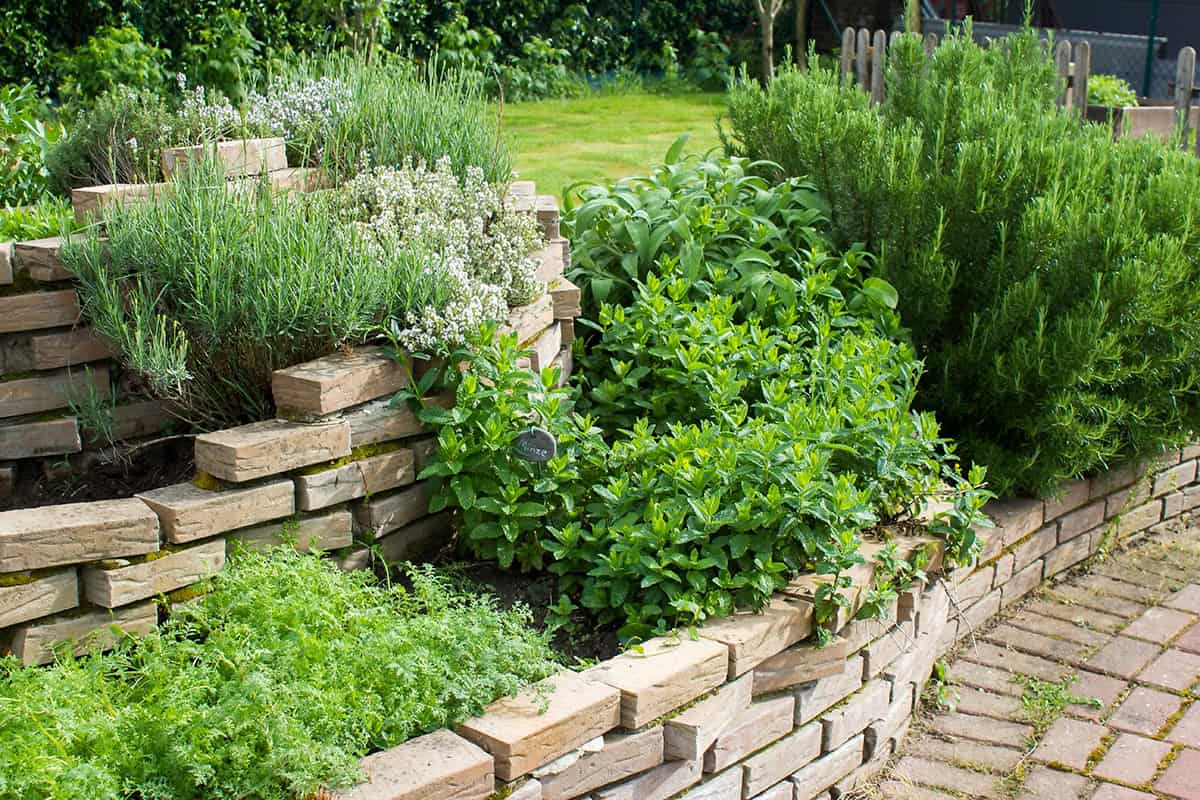There’s something satisfying about walking into your garden and finding the solution to a headache or a scratchy throat. No prescription, no wait — just nature doing its thing. In this list, you’ll find 25 of the most useful medicinal herbs you can grow right at home.
Table of Contents
Medicinal Herbs You Should Grow in Your Garden
Many herbs have therapeutic uses and are easy to cultivate. These herbs can serve as natural remedies for various ailments and improve your overall well-being.
Aloe Vera
Aloe Vera is a versatile plant known for its soothing gel. The gel is often used to treat burns, cuts, and skin irritations. Its green, fleshy leaves are filled with a translucent, cooling gel. Aloe Vera, a hardy succulent, thrives in well-draining soil and bright, indirect sunlight. It requires minimal watering. Keep it indoors or in your garden.
Lavender
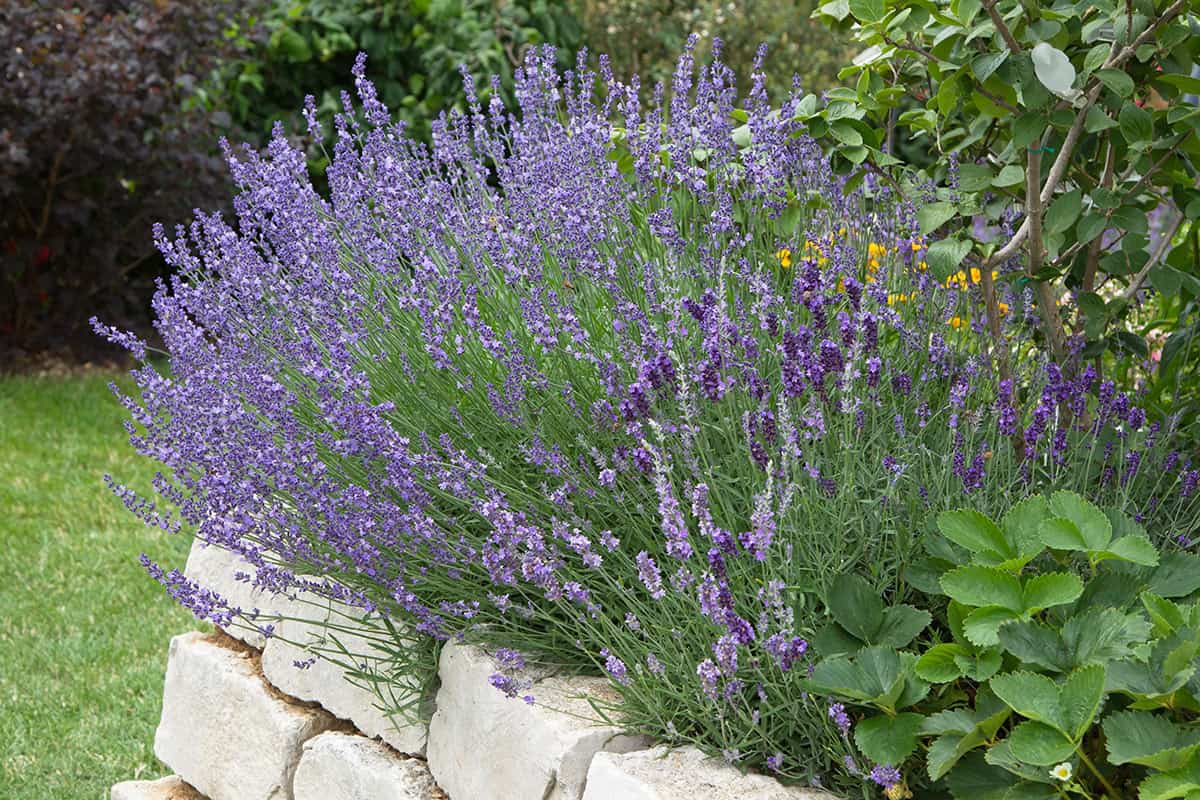
Cherished for its calming aroma, lavender offers both beauty and practicality. The dried flowers are often used in teas and sachets, and the herb supports relaxation and sleep. With its purple blooms, lavender prefers sandy, well-drained soil and plenty of sun. Bees and pollinators are naturally drawn to it.
Chamomile

Delicate, daisy-like flowers hide the fact that chamomile is tougher than it looks. You can dry the blooms for tea, or simply enjoy them fresh in the garden. A sunny spot works best, though it doesn’t demand much else besides soil that isn’t soggy. In containers, it’s light enough to shift around and pair with other herbs.
Peppermint

Refreshing and versatile, peppermint is valued for aiding digestion and easing headaches. Its cool, minty flavor works in teas and culinary dishes. The plant grows best in moist, well-drained soil with partial shade. In containers, it’s easier to manage its spreading habit.
Echinacea (Coneflower)
Recognizable by its pink-purple petals, echinacea is widely used for boosting immunity. It’s especially popular during cold and flu season. This perennial thrives in full sun and well-drained soil, attracting butterflies and bees while adding vibrant color to the garden.
Lemon Balm
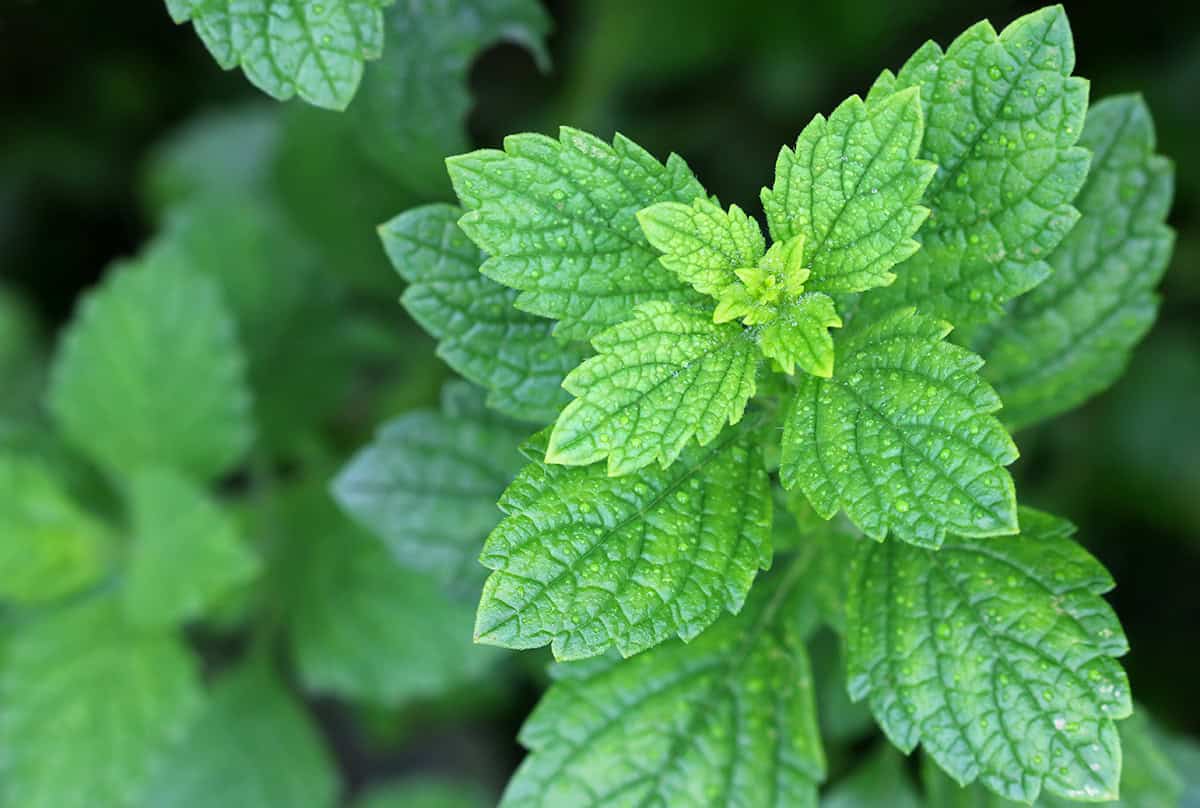
Rub a leaf between your fingers and you’ll see why lemon balm is treasured — the citrus scent lifts instantly. It grows in almost any patch of ground, though it’s tidier in pots where it doesn’t creep as much. Often used in teas, it’s one of those herbs that works for both flavor and mood.
Calendula
Bright, daisy-like flowers in orange and gold make calendula impossible to ignore. It’s one of the few healing herbs that looks cheerful while it works, used in creams and teas for skin and health. Cool weather brings out its best bloom, and in a pot it can cheer up even a bare balcony.
Rosemary
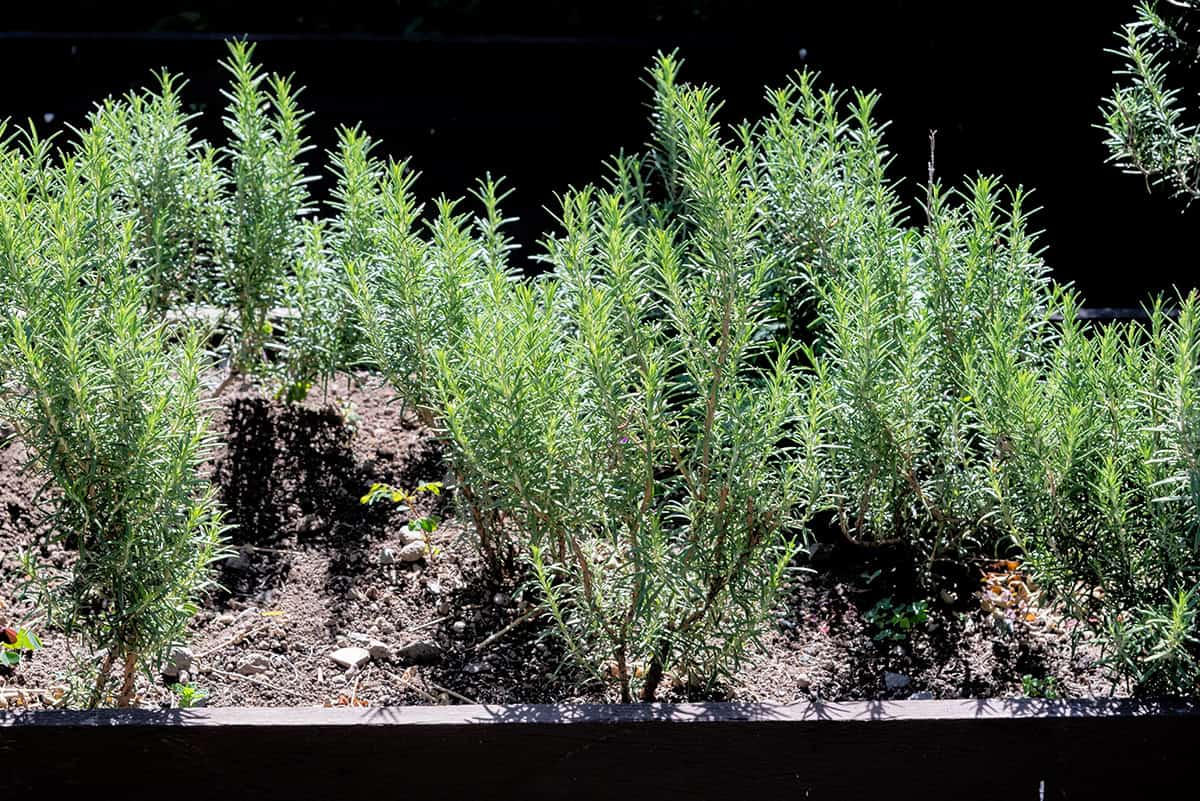
Stiff, pine-like sprigs of rosemary add both scent and structure to a garden. Cooks snip it for roasts and breads, but it’s just as striking as a small evergreen shrub. Give it a clay pot and a sunny spot, and it will thrive for years without much more than the occasional drink.
Thyme

Tiny leaves, huge character. Thyme packs earthy flavor into the smallest sprigs and spreads like a carpet when given room. Dry soil doesn’t bother it, and a terracotta pot is often all it needs. The bonus: clusters of tiny purple flowers that bees absolutely adore.
Sage
Soft, gray-green leaves make sage stand out even before you use it in cooking. It can handle heat, drought, and lean soil, so it’s more forgiving than its reputation suggests. A pot of sage on a patio looks ornamental while doubling as a kitchen staple.
Basil

Popular in Italian cooking, basil brings fresh flavor and aroma to countless dishes. It’s also known for helping with digestion and reducing inflammation. Full sun and rich, well-drained soil keep it thriving, while pinching back flowers ensures longer leaf production.
Oregano

Pungent and bold, oregano is a favorite in Mediterranean cuisine. It also carries antibacterial and antioxidant qualities. Oregano loves full sun and well-drained soil, though containers are often best to keep its quick-spreading habit under control.
Holy Basil (Tulsi)
Holy Basil is revered for its stress-relieving properties. It’s often used in teas for its calming effects and to support immune health. This herb grows well in rich, well-drained soil with full sun. Its spicy aroma and medicinal uses make it a valuable addition to any garden.
Yarrow
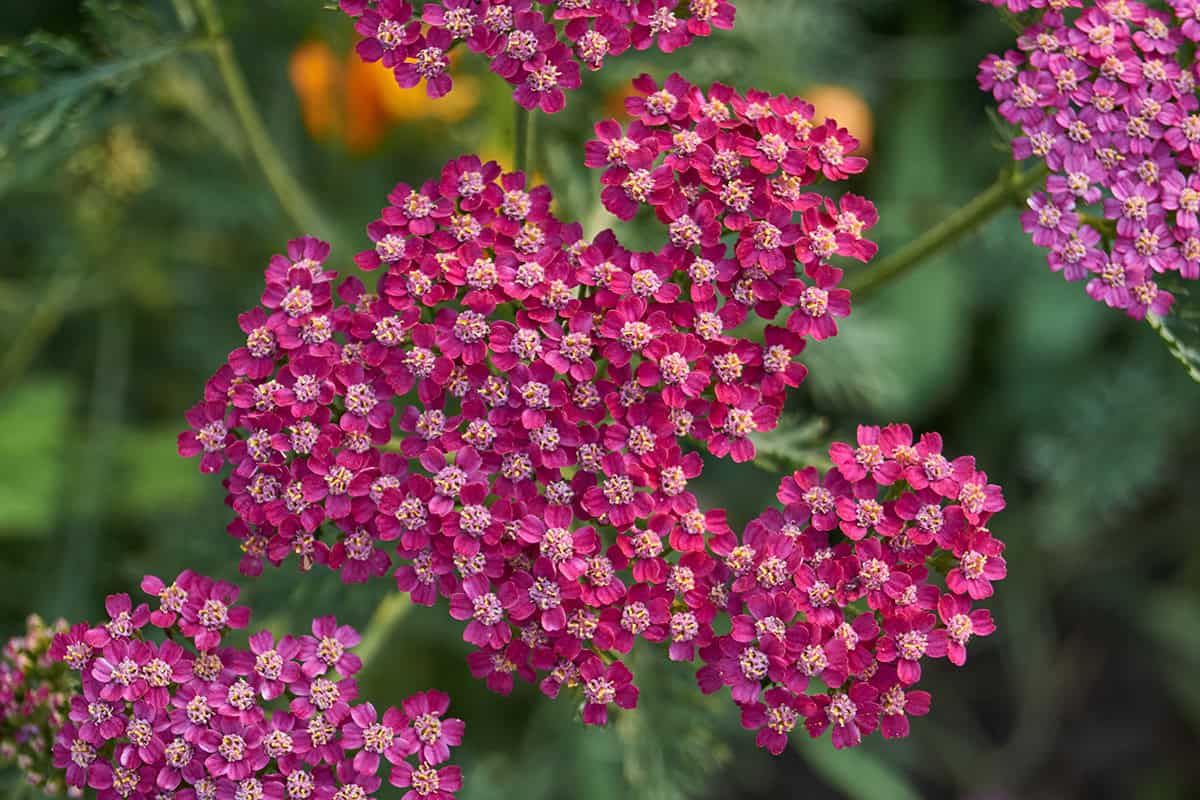
Resilient and attractive, yarrow is recognized for aiding wound healing. Its fern-like leaves and small clustered flowers add beauty as well as usefulness. Yarrow thrives in full sun and poor soil, needing little maintenance while providing herbal and ornamental value.
Marshmallow Root
Tall stems and soft leaves hide marshmallow’s real treasure underground: roots rich in soothing mucilage, once used in old remedies and sweets. It does best in loamy, moist soil and can settle in for years once planted. A sturdy pot works if you want to keep it close at hand.
Fennel

Airy, feathery foliage and a licorice scent give fennel a presence all its own. Both the bulb and leaves are edible, and the flowers draw beneficial insects into the garden. It stands tall in containers if given space, rewarding you with both flavor and ornamental flair.
Dandelion
Dandelion is more than a common weed; it’s known for detoxifying the liver. Its leaves and root can be used in teas or salads. Thriving in most soil types and full sun, dandelion is resilient and beneficial, making it a surprisingly useful member of the garden.
Feverfew
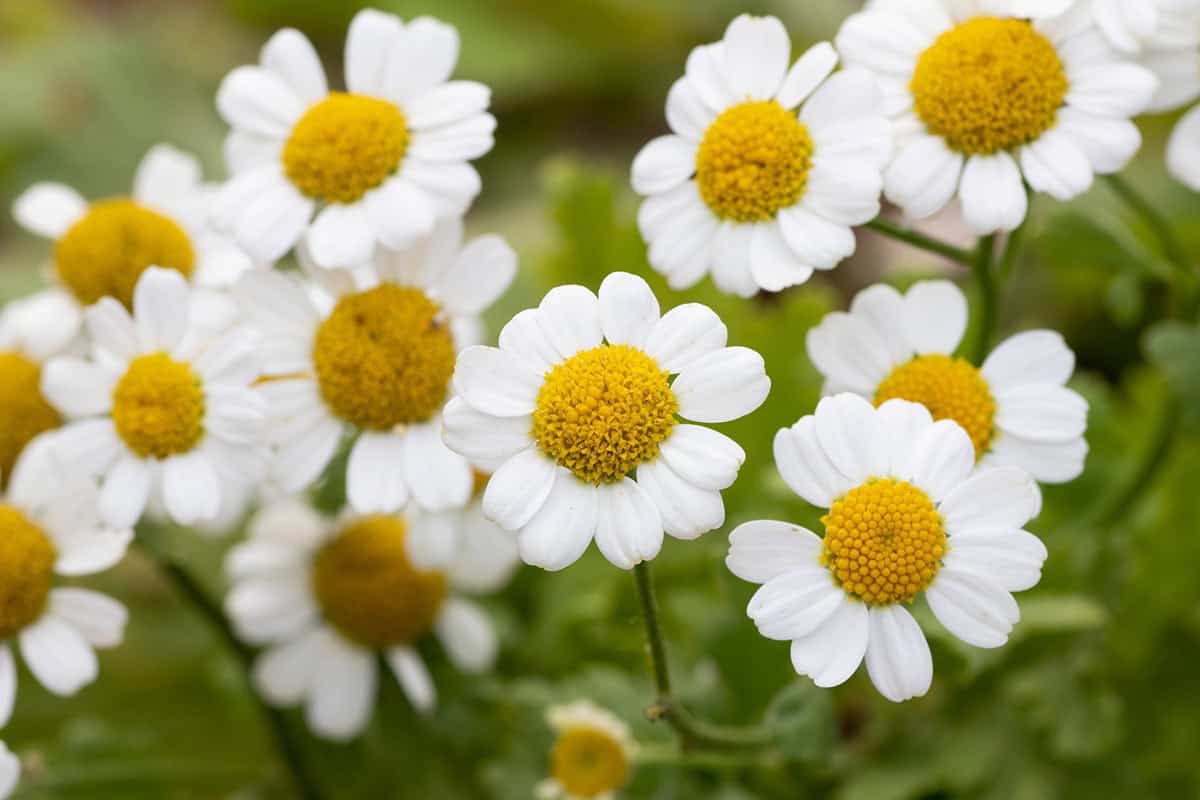
Tiny daisy-like flowers cover feverfew, a plant once widely grown for easing migraines. It’s both medicinal and ornamental, adding brightness to borders or pots. Left to itself, it will reseed and return, often stronger than before.
Valerian Root
Valerian sends up tall stems topped with sweetly scented flowers, but its roots are the part used for calming teas and sleep remedies. It prefers a spot that stays moist and doesn’t mind partial shade. Over time, it forms clumps that can dominate a container if left unchecked.
Catnip
Cats can’t resist it, but catnip has a quiet use for people too — as a mild relaxant in tea. It’s not fussy about soil or sun and grows back reliably each year. If you don’t want the whole garden taken over, keep it in a pot.
Comfrey
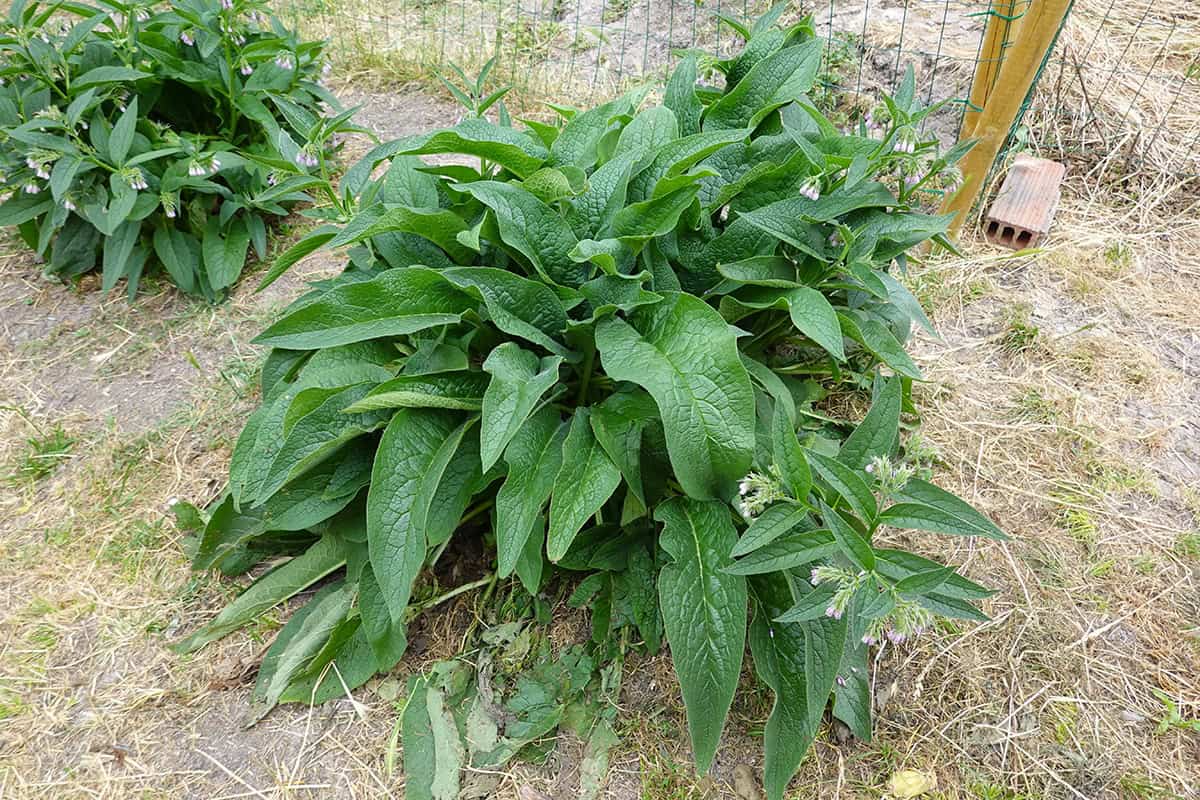
Big, rough leaves and deep roots give comfrey its power. Gardeners use it in healing salves and as a “green manure,” since those roots pull nutrients up from the depths. A single clump in a large container can provide all the leaves you’ll ever need.
Plantain Leaf
Broad leaves that soothe insect bites and scrapes make plantain a useful “first-aid” plant. It pops up almost anywhere, often without invitation. In a pot, it behaves more politely, staying close and ready whenever you need it.
Garlic

Few plants offer as much punch in both kitchen and medicine as garlic. Plant cloves in fall, and by midsummer, you’ll be harvesting heads full of flavor. It likes sunny ground, but containers work too, as long as you give it enough depth for its roots.
Ginger
Spicy, warming, and fragrant, ginger grows from its rhizomes, which are easily tucked into pots. It prefers steady warmth and soil that holds some moisture but never stays soggy. Harvesting your own fresh ginger root is one of the joys of growing it at home.
St. John’s Wort
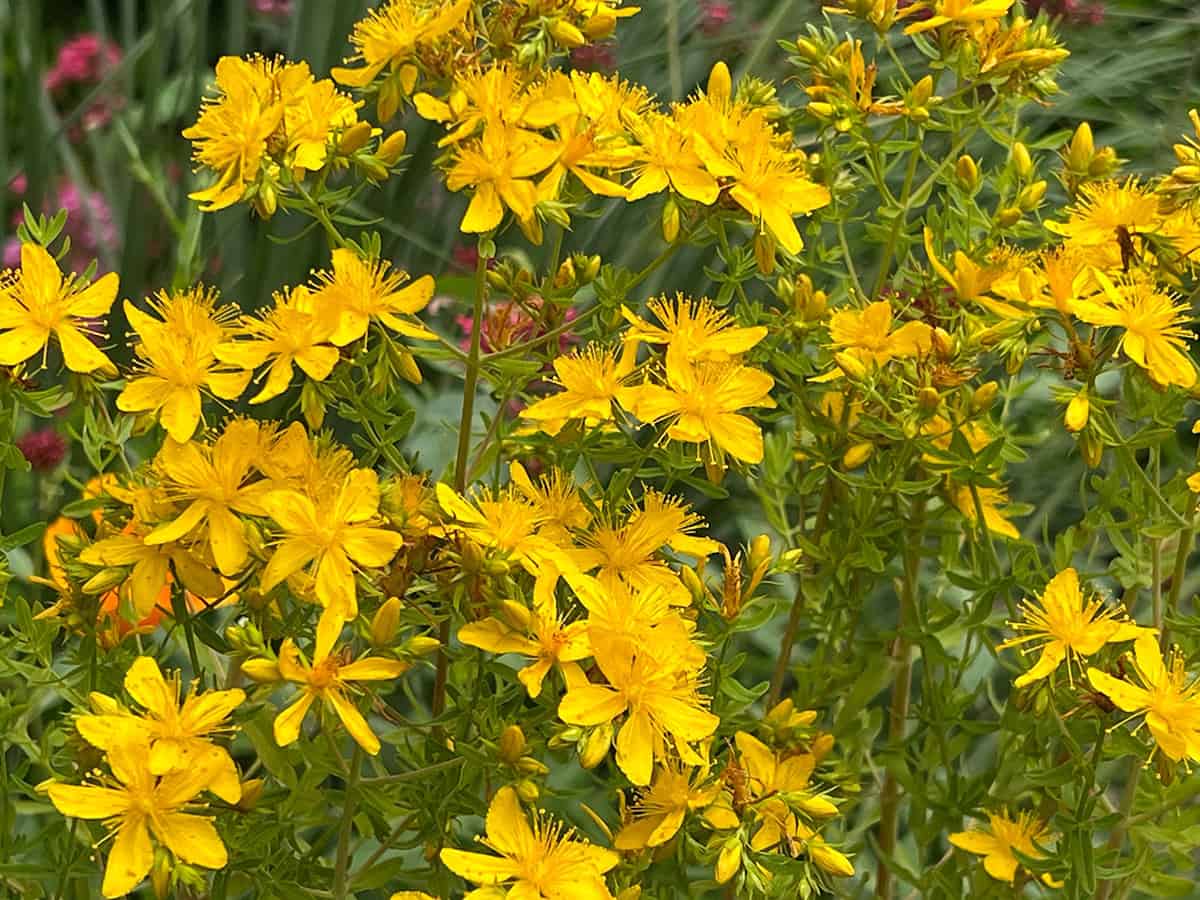
St. John’s Wort is often used to help with mild depression and mood disorders. Its bright yellow flowers are both decorative and useful when made into tinctures or teas. This herb thrives in well-drained soil with plenty of sunlight, making it a hardy choice for any herbal garden.
